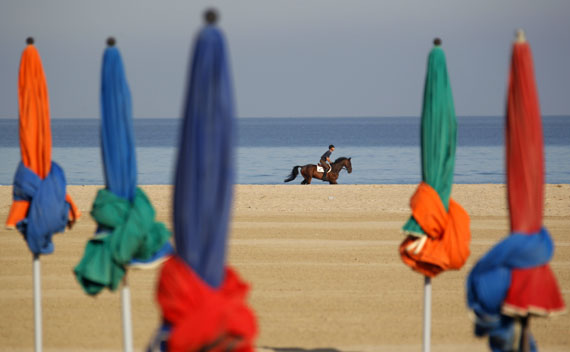The G8—It’s Baaaaack!
More on:

Once upon a time, Group of 8 (G8) summits were all the rage. Annual meetings of the globe’s board of directors, they provided at least the illusion that the world was in steady hands. Then came the financial crisis, proving that global problems could no longer be solved in a cozy Western boardroom. The leaders’ forum must expand to include the most dynamic emerging economies, including China, India, and Brazil, and other, middle-ranking players like South Korea and Turkey.
The apparent death knell of the venerable G8 sounded in September 2009, when President Obama designated the Group of 20 (G20) the “premier forum for global economic coordination.” President Lula of Brazil rubbed in the point: “The G8 has no more reason to exist.” All that remained was to perform the obsequies.
But a funny thing happened on the way to the funeral. None of the G8 members were ready to bury it, too attached to its aura of exclusivity and Western like-mindedness.
So like a zombie, the G8 is “baaaaack!” This Thursday, French President Sarkozy welcomes his U.S, German, UK, Italian, Canadian, Japanese and Russian colleagues to the picturesque town of Deauville, Normandy. Beyond soaking in the seascape that inspired innumerable Impressionists—what do they hope to accomplish? And just what is the rationale for reviving the corpse?
Let’s take the second question first. Much of the G8’s attraction is exclusivity, pure and simple. This is especially true for relative lightweights like Italy and Canada, who enjoy far greater influence than in the larger G20.
Small group intimacy is attractive for other reasons. At its best, global summitry allows leaders to understand each others’ positions and personalities in an informal setting, and achieve breakthroughs on global deadlocks. Expansion from 8 to 20 transforms the forum into yet another event that is scripted and pre-cooked, where the minutes slip by in the ritual “tour de table.”
Much of the work at summits occurs in bilateral “sidebar” conversations. But here the numbers get really scary. Any group of eight people presents 28 potential bilateral conversations. With a group of twenty, that number jumps to 190 potential pairings!
Furthermore, there are symbolic and substantive reasons for holding onto the G8. Leaving aside the presence of authoritarian Russia (which gained membership in a misguided favor to Boris Yeltsin), the G8 embodies the identity and aspirations of the world’s most advanced market democracies. It is a steering group for the “West”—at a time when the post-1945 order is being challenged by the “Rest”. (I make this argument in a report for the Century Foundation.)
This normative solidarity has practical implications. Simply put, the United States and its Western partners regard the G8 as a more congenial framework in which to discuss sensitive issues of “high politics”—such as Iran’s nuclear program. And they also see it as a useful mechanism to generate foreign assistance for developing countries—the lion’s share of which continues to come from the biggest Organization for Economic Cooperation and Development (OECD) nations, notwithstanding the rise of “non-traditional” donors like China, India, Brazil, and Saudi Arabia.
France’s agenda for Deauville reflects these considerations. Beyond discussing hot spots like Iraq, Afghanistan, North Korea and Pakistan, the G8 will pledge its support for the “Arab Spring”, call for peaceful democratic transitions in the region, and offer practical assistance to Egypt and Tunisia, among others. They will also seek to improve the G8’s partnership with Africa, including The New Partnership for Africa’s Development (NEPAD), the African Union, and recently elected democratic governments, including Cote d’Ivoire. Finally, the G8 will examine potential engines of growth within “mature” OECD economies themselves.
No doubt, France’s next summit, the G20 event in Cannes in November, will garner more global attention. But the Deauville agenda suggests there is life in the ole G8 yet.
More on:
 Online Store
Online Store